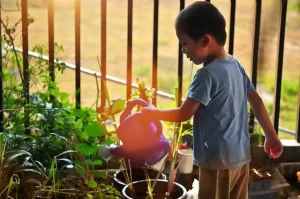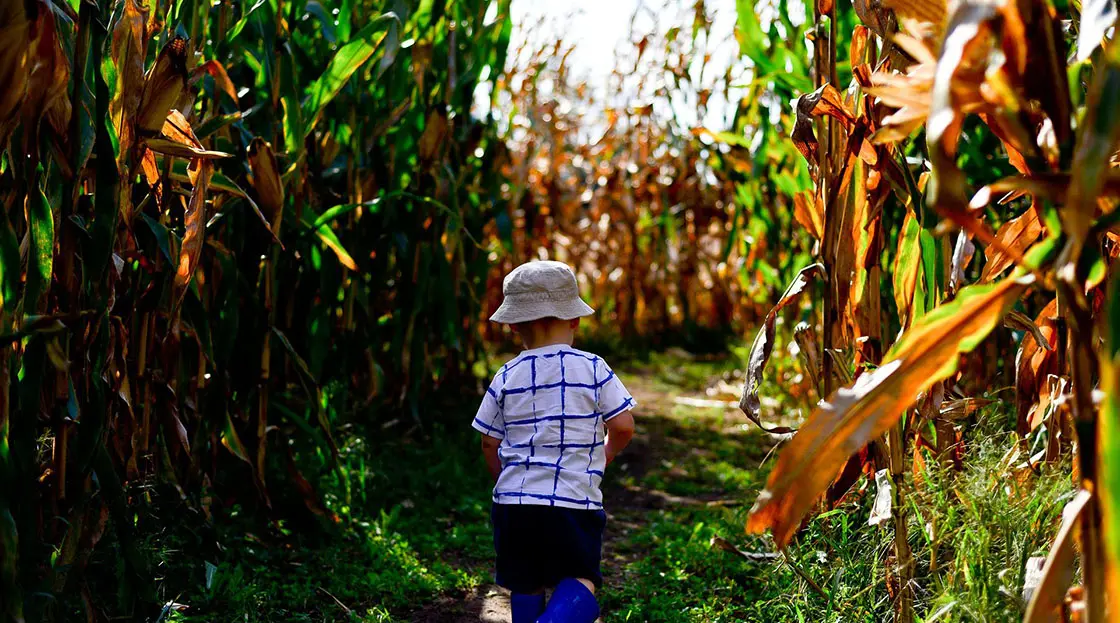According to the Virginia Department of Agriculture and Consumer Services website, the state of Virginia is currently home to 43,225 farms. Virginia Farm Bureau estimates that 90% of all farms in the state are owned by families or individuals. With so many Virginia families living on a farm you may wonder if their kids are missing something because they don’t live in a more urban environment. Growing up on a farm provides a child with many benefits that urban youth may not be able to access. Keep reading to find out why raising your child on a farm may be the best choice.
Increased Confidence
Children who grow up on farms learn from a young age that they will be part of the team that completes the work. Unless you are micro farming it is all hands on deck in the farming life meaning your children will be assisting with chores inside and outside. Everyone feels a sense of pride and confidence in every completed job. Children are no different and allowing them to assist in the care maintenance of the farm improves their self esteem.
Understanding where their food comes from
 Urban youth may not realize where their food came from before it ended up on the shelves at the local grocers. However their farming counterparts see first hand that their fruits and vegetables come from the hard work of planting seeds and caring for plants. They know that the hamburger that they are eating was once a cow they regularly helped feed. This gives them a sense of understanding the work involved in creating our food and that a life was given in order for their family to enjoy the meal that they are eating. This knowledge provides a feeling of gratitude for what is put before them and makes them aware of the need to limit food waste.
Urban youth may not realize where their food came from before it ended up on the shelves at the local grocers. However their farming counterparts see first hand that their fruits and vegetables come from the hard work of planting seeds and caring for plants. They know that the hamburger that they are eating was once a cow they regularly helped feed. This gives them a sense of understanding the work involved in creating our food and that a life was given in order for their family to enjoy the meal that they are eating. This knowledge provides a feeling of gratitude for what is put before them and makes them aware of the need to limit food waste.
Increased understanding of weather patterns and how weather and the environment can affect crops
Growing up on a farm means that a child is aware of the effects from one moment to the next that weather has on the farm and the crops. This could be knowing a storm is coming and having to complete necessary chores and make sure all plants and animals are safe before inclement weather sets in. It also teaches children how a drought or flood can directly affect a crop and can therefore directly affect the amount of food that is available to eat. Weather can also directly impact the income the family can expect from the current crop under extreme weather conditions. This gives farm kids a stronger understanding of the challenges of climate change and the need to be protectors of the earth and animals under their care.
Putting others needs before their own
Farm children understand the necessity of putting their wants aside to ensure that plants and animals in their care needs are met first. You may be tired and not want to get out of bed but the animals in your care cannot feed themselves or ensure that their environment is clean. This helps children to understand that being responsible and meeting the needs of others first will have far reaching benefits. Feeling a sense of pride for a job well done will motivate them to work hard for what they want in the future knowing what lies ahead will be worth the effort.
Learning the benefits of teamwork and building strong family bonds
 Working a farm is never a one person job. It involves the entire family to do their part to make everything run smoothly. When problems arise you must problem solve either on your own or as a team to come up with a solution – especially when the lives of plants and animals are at stake. Many farm children are involved in clubs such as 4H. These programs help children learn to look at criticism and mistakes as a growing and learning experience. If a judge lets a child know that the child needs to improve this or that to have a stronger healthier animal, they are going to take that information and implement a solution. Both working with your family as a team and being judged in public for the work that you have done is excellent training for working in a team environment later in life. Your child will learn that you often must work as a team towards a common goal and making concessions and understanding criticism can be a path to growth.
Working a farm is never a one person job. It involves the entire family to do their part to make everything run smoothly. When problems arise you must problem solve either on your own or as a team to come up with a solution – especially when the lives of plants and animals are at stake. Many farm children are involved in clubs such as 4H. These programs help children learn to look at criticism and mistakes as a growing and learning experience. If a judge lets a child know that the child needs to improve this or that to have a stronger healthier animal, they are going to take that information and implement a solution. Both working with your family as a team and being judged in public for the work that you have done is excellent training for working in a team environment later in life. Your child will learn that you often must work as a team towards a common goal and making concessions and understanding criticism can be a path to growth.
The farming life is a hard life full of hard physical labor and unforeseen events. The lessons learned on a farm about food, working as a team and putting others’ needs first will set your child up for a successful life no matter what they choose to do.
FAQ
Why is rural life better?
According to movehomefaster.co.uk, being connected to nature can have a positive impact on your health and well being and can improve the quality of your life by allowing you to get back in touch with what really matters.
What skills do you learn on a farm?
The Farm Bureau Financial Services states that some of the skills you learn living on a farm are problem solving, time management, how to enjoy the simple things in life and being able to accept things that you cannot control.
